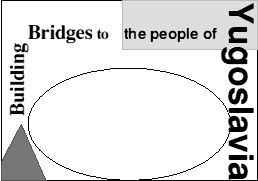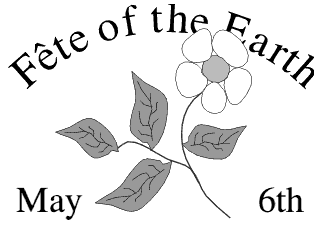After a break of several months, six of us were outside the Wimbledon Library on March 14th with the Peace Table, collecting signatures on a petition for the abolition of nuclear weapons with a plea to the British government to live up to its obligations under the Non-Proliferation Treaty and to attend the NPT Review Conference in New York in April “to pursue negotiations in good faith on effective measures relating to cessation of the nuclear arms race at an early date, and to nuclear disarmament, and on a treaty on general and complete disarmament under strict and effective international control.”
The response was very good and we collected 74 signatures in 2 hours, sold a few badges and signed up one new member. The person who joined was active in the peace movement in the 60s and seemed a bit surprised to see us still campaigning. Many people are unaware that Britain still has nuclear weapons, thinking that when Greenham closed and cruise missiles were sent packing that was the end of them and that CND no longer exists. The newspapers and TV report very little of the activity carried out by CND although there were a few reports of the demonstration against Trident in Scotland in February.
To help raise the profile of our local group we have included in your newsletter a postcard and a badge. Please use the postcard to your friends and relations as a greeting and wear the badge at all times. It is amazing the number of comments you get about the badge and surprise that CND is still here.
The meeting arranged by the National Peace Council before their March Council Meeting was entitled “The Changing Rôle of the Military — Building a Culture of Peace: The Dialogue Begins”. The speaker was Colonel Bob Stewart, Commander of U.N. Forces Bosnia (1992−93).
We were expecting a dialogue between Colonel Stewart and Bruce Kent, but in the event Bruce took the chair, and invited questions after the talk. It was, I suppose, the beginning of a dialogue. Bruce stressed how vital it is for the peace movement to be willing to undertake such an exchange.
Colonel Bob Stewart spoke with great fluency about his experience in the Balkans. After conventional training at Sandhurst and army service for 20 years, including a period in Northern Ireland, nothing had prepared him for the situation he met in Bosnia. Here he was working with an unclear mandate, under the dual control of the U.N. and the British Army. He felt the real aim of the Army should be to save the lives of civilians, even if soldiers on each side were killed, not just to escort humanitarian aid, and he spoke with scorn of the fear in the United States of bodybags returning home. In short, he found the U.N. peacekeeping mandate at that time was unworkable.
During questions Colonel Stewart spoke about how his view of NATO had changed over the years. At the time of the fall of the Berlin Wall he had thought the threat from Russia was bogus, but he now felt that it had been necessary to keep NATO strong, for the situation had changed so drastically (he spoke of the ‘Mafia’ now running the country in Russia). In reply to a question about whether Russia would feel less threatened if NATO were not expanding eastward, Colonel Stewart answered that the Russians know they are not really threatened, and that the eventual aim should be to include Russia in NATO. They would rather turn to NATO than the U.N. “because it works better”.
On the subject of Kosovo Colonel Stewart was adamant that the bombing was morally wrong — the right course of action would have been to fight on the ground to protect vulnerable people. A final question came from Peter Dyson of the United Nations Association: “Surely the only way forward is to reform the U.N.?” “In the long term, I agree with you,” replied Colonel Stewart.
This talk was followed by a meeting of the National Peace Council at which various interesting items of business were discussed. The Council is an umbrella organization for the Peace Movement and this year they are making a huge effort to support and publicize the International Year for the Culture of Peace, starting with a special issue of the Peace Movement Magazine at the end of April. They aim to widen the peace movement network, and have made initial contacts with the Imperial War Museum and the British Legion. There are plans to work with the United Nations Association in the organization of events on 11th November as a culmination of the year’s activities, looking back in remembrance but also forward to a commitment to the Culture of Peace.

Our speaker on April 11th (Community Centre 8pm) is Melissa Geddes of Anglo-Yugoslav Medical Aid (AYMA), an organisation devoted to supplying urgent humanitarian aid to the ordinary people of Yugoslavia — basic medical equipment such as bandages, gauzes and blood transfusion bags.
Imposition of economic sanctions on the régime of President Milosevic means that Yugoslavia is getting no help in rebuilding the schools, hospitals, civilian factories, electricity supplies, water works, roads, railways and bridges destroyed by NATO bombing, nor in cleaning up an environment poisoned by the bombing of chemical plants and the use of depleted uranium munitions — and it is the ordinary civilian population which continues to suffer.
With the anniversary of the beginning of the bombing last month there was plenty of media attention given to the plight of the population in Kosovo and analysis of the NATO military and political strategy but little space has been given to the plight of non-Kosovo Serbs. The Committee for Peace in the Balkans (co-ordinated by Alice Mahon M.P.) and AYMA are campaigning for the lifting of sanctions and provision of urgent humanitarian aid to the whole of Yugoslavia on a non-discriminatory basis.
WDC/CND members who heard Felicity Arbuthnot speak so movingly last year about the fate of the civilian population of Iraq will recognise immediate parallels.
WDC/CND members were among the guests at a very pleasant and fruitful event organised by Merton UNA in the Merton Civic Centre on the first day of spring, March 21st. Speakers on behalf of the different organisations and faith groups represented were invited to contribute blooms to a symbolic bouquet of flowers which thus increased in size and beauty as the evening progressed — a very imaginative touch.
I spoke about our work in CND and enjoyed an interesting exchange of views and ideas with other guests during the socialising which followed the more formal presentations. Invitations had been sent to, among others, all the organisations which worked together last year during the Merton Hague Peace event. Not all were able to be present but there is real scope for developing and extending this Hague Coalition and continuing to work collectively for a Culture of Peace — the ‘Merton Network for a Culture of Peace’ perhaps?
MANA concerts are all too often held at North London venues, relatively inaccessible from Wimbledon, but April gives us two opportunities to support these excellent Concerts for Peace, where professional musicians give their services free and all profits go to the peace movement. These are quality concerts. How about inviting non-CND friends?
You will remember how the 3 Trident Ploughshares women accused of criminal damage were acquitted last year by a Scottish court on the grounds of ‘preventing the greater crime’. Sheriff Gimlett said she had to accept this defence as the government did not bring any argument for the legality of nuclear weapons. Was the MoD purposely avoiding a confrontation for fear that it might lose the legal argument?
Please support the meeting organised by Richmond & Barnes CND (see Diary).
This Review Conference is potentially the most significant opportunity for some time for real progress to be made in getting global agreement on nuclear disarmament.
Article VI of the original NPT famously commits the nuclear states to pursue nuclear disarmament in good faith — an obligation which they have blatantly ignored. Not surprisingly there are increasing signs that the non-nuclear signatories are getting restive at being held to their promise to forego nuclear weapons, and Israel, India and Pakistan show quite clearly that they see no reason to become part of the treaty process at all.
The original NPT suited the nuclear states very well in that it enshrined the status quo — the nuclear ‘haves’ and ‘have nots’ — but the prospect of the NPT unravelling should sharpen the minds of all concerned, and there is every opportunity for exciting and imaginative progress. CND has been lobbying hard for the UK Government to send a high level delegation to New York to demonstrate international leadership for once, instead of slavish adherence to the Americans. A WDC/CND delegation will meet our M.P., Roger Casale, at his surgery on March 31st.
Our Peace exhibition of children’s work remained on display in West Barnes Library throughout most of March and transfers in April to the children’s library in Morden. Do make the effort to see this exhibition if you have not yet done so!
The “Agenda for Peace and Justice in the 21st century” which came out of the non-governmental peace conference at the Hague last year emphasises the importance of peace education in breaking down the barriers and prejudice that have caused so much misery. Indeed one of the most significant features of the Hague conference was the opportunity it gave for young people from conflict zones all over the world to sit down and talk to each other — for the first time ever.
Here in WDC/CND we increasingly see our campaigning for the elimination of weapons of mass destruction in the context of a wider search for alternatives to violence in solving international disputes. We are very pleased to have been given permission to have a stall at a conference for Merton teachers and school governors on April 6th. Representatives from most Merton schools will spend the day discussing the new Government guidelines for ‘citizenship’ as a compulsory part of the National Curriculum, and public-spirited organisations (such as ourselves) will have the chance to display educational materials and talk to anyone who is interested.
It is immensely encouraging that the DfEE curriculum framework now includes specific reference to the United Nations, the fruit of persistent lobbying during the consultation period last year.
Next month we hold our big annual fund-raising (and social) event, the Fête of the Earth.
You may already have received begging phone calls from members of the organising committee:
We can hope to raise in the region of £1000 in a good year but this means using all the help we can can. The fête cannot run without people. Transport is a particular problem as so few of the stalwart regular WDC activists have cars.
We have already received a generous donation of good quality books — spread the word to your bibliophile friends — and the usual magnificent display of plants will be on offer.
[Note from Joanna: rock plants e.g. Alyssum saxatile, Arabis, Aubretia, Primula denticulata retailing at £1·35 at the Morden Hall Garden Centre will be available for 50p.]
Please help — please publicise — please donate!
